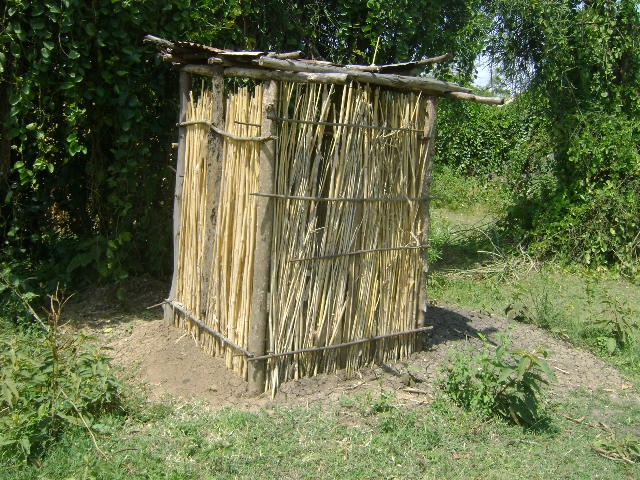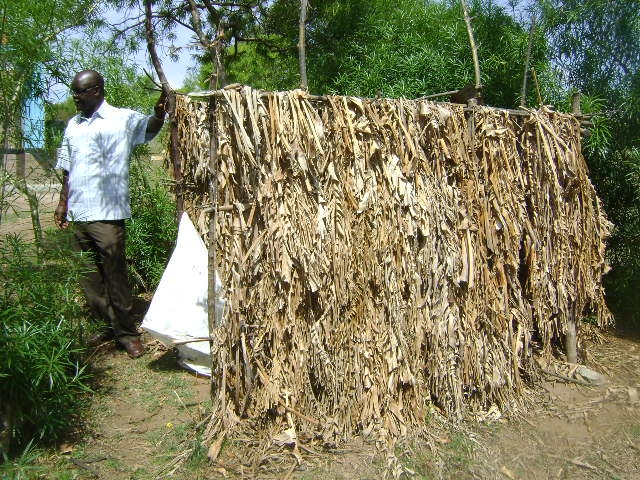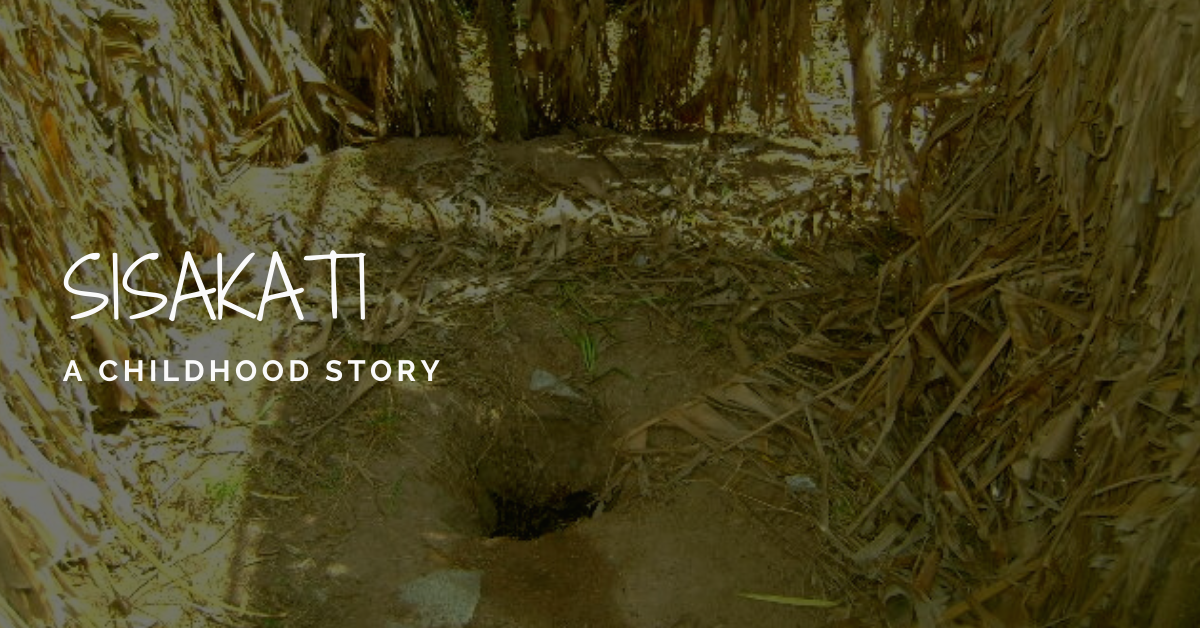If you grew up or have stayed in the village but you never cleaned up in a “washroom” constructed by banana leaves (sisakati) whose floor composed of a patchwork of cobblestones, humbly accept that you grew up privileged.
There, I said it. If my unsolicited opinion brings up anxieties over your self-diagnosis of a serious case of affluenza, find a therapist; it is beyond my remit here to do more than make you guilty over something you had no control about- being entitled. However, what I’m here to do is to open a window to the world I grew up in. A world of the barest essentials, simple joys and the power of coming together. The world of the humble sisakati.
From my rumblings here, you by now know that I am one village girl who bore the brunt of inadequacies, growing up in a region disadvantaged by Kenya’s politics. Like many Kenyans my age, I spent my nursery school and my lower primary learning under a tree. Have you seen pictures of children sited on stones writing on their laps? Yes…. those ones, that was me.
No chance
Nonetheless with the rose-tinted glasses of spirit of mulembe – famed to be stocky, stoic and resilient – I look back to those days with a lot of nostalgic pride. We made it! We had close to no chance, but we made it. Consider whenever it rained. Mark you this the land that the great prophet Mutonyi wa Nabukelembe through his chingayu/imbasa prophecies said will be ours through war and victory. A land loved by the rain.
Therefore, often classes would be disrupted. Not just for us the younger ones who learned under the trees, but the whole school. At first, when rains came, we took shelter in the few classrooms that housed the upper classes. The inhabitants would continue with their lessons unperturbed by our mini invasion.
It was also the perfect opportunity for my elder sister to completely ignore my thumb sucking self. I’d scurry over to her desk at the first sign of rain. Sometimes they let me stay on, meaning I invited myself to a share of her lunch of mapwoni. Joy. But she often would be acting like we both didn’t come from a place under the rule of the same lukhendu…. Story for another day. Anyway, with time, if the rains kept pounding, the head teacher, my father, would reorganize us by instructing us to join specific classes.
A childhood making do with the barest essentials
Back to the classroom under the tree. Our blackboard was a mobile one. This board was carried every morning from the headmaster’s office to the tree and back in the afternoon by the class prefect. This is a task that I carried out in a stride. The only desk available was for the teacher. He sat on it when marking our assignments. It was also my duty to plan for it to be ferried by the boys in our class to and fro my father’s office.
In the rain, having being re-designated to the classrooms, the teachers would rearrange us. They made us to sit facing in opposite directions. If that day it happened that class six and class three pupils would be sharing a classroom, class six pupils would face the front and making use of the blackboard on the wall. Our class teacher would then make us class three pupils face face the back wall.
Naughty
Our mobile blackboard would be ferried in and the teachers would then go ahead teaching their respective lessons. This is when the fun started. If standard six was having a mathematics lesson and standard three class a Kiswahili lesson, we allowed ourselves to be naughty.
The class six teacher would be busy working out a mathematics question on the blackboard. Then the Kiswahili teacher would ask his students to read a sentence written on his black board. Both class six and class three pupils would read the Kiswahili sentence.
The mathematics teacher would be left fighting to recapture the attention of his pupils back to the lesson. This would go on and on till the end of the lesson. When time for break came, we would walk out of the classroom feeling like professors having taken two lessons in one sitting… hahaha.
But this playful camaraderie would dissipate as soon as reality hit of the scramble amid poop and other waste that awaited one at the washrooms. It was enough to make one miss home. Especially for the shy ones like me who can’t go while people are watching. I remember going home every afternoon constipated from holding it in. The sight of my mum’s humble sisakati in her chandangu gave me untold joy. You all know that feeling, don’t you?
All in one accord
One Friday our headteacher sent us to ask our parents to attend an important meeting on the Monday of the following week without fail. So when father got home that evening, just like the other kids at school, I informed him that the headteacher had requested for their indulgence the coming Monday.
He thanked me for the news, asking if It was because I had been naughty or if When our parents reported. He asked them to help him put up classrooms and toilets for us.
Our parents were not allowed to opt in or out. The headteacher asked them to bring jembes, pangas, and water the following day. Each parent was required to physically participate in the exercise. Those who could not manage would be surcharged a certain amount. Off they went.
Joy
The following day our parents, including my father who that day wore both is caps as the headteacher and as a parent in the school, checked in dressed in not very presentable outfits. It took them three days to put up structures meant to be classrooms and washrooms.

Our new classrooms were made of branches, thrown mud and roofed with reeds. Those three days was a feast of ripe bananas, sugarcane, chiswa chisiisi and such like delicacies. Joy. The surrounding community, including those without children in our school, contributed to our project in all ways. Donating food, energy and time.
Constructing sisakati, the traditional washroom
One such structure that our parents constructed was a washroom whose walls were made of banana leaves. They started by digging up a deep pit. Then they covered the top of the pit by arranging heavy logs preserved using used oil from my father’s motorcycle. Finally, they covered the logs using earth and sand as mortar to hold cobblestones together.
For the walls, they erected posts in a rectangular fashion. The posts were then connected to each other with smaller poles using ropes. Much smaller ropes were then used to hold weaved the banana leaves. Finally, our school had enough sisakati. Our parents lovingly made one each for boys, another for girls and one for the teachers. Back at homes, sisakati served us as washrooms in the fullest sense – used as bathrooms and latrines. In our case they were used as restrooms.


